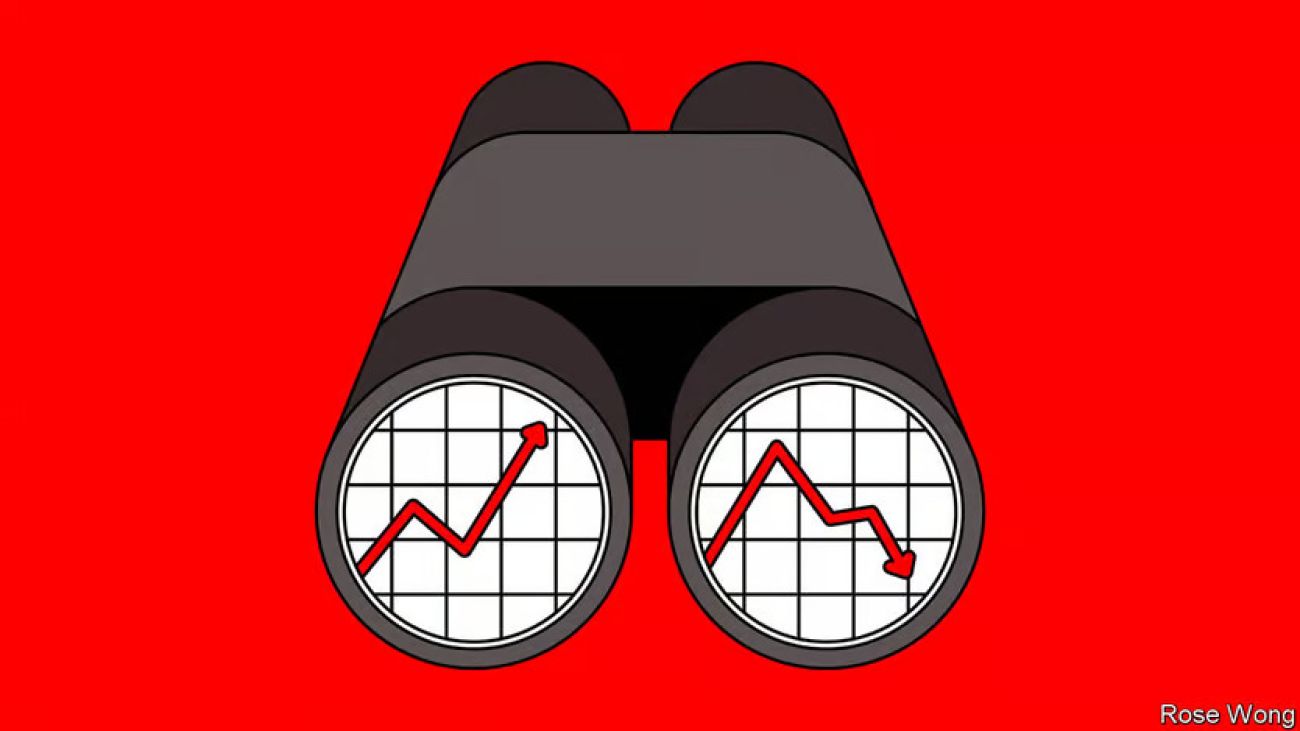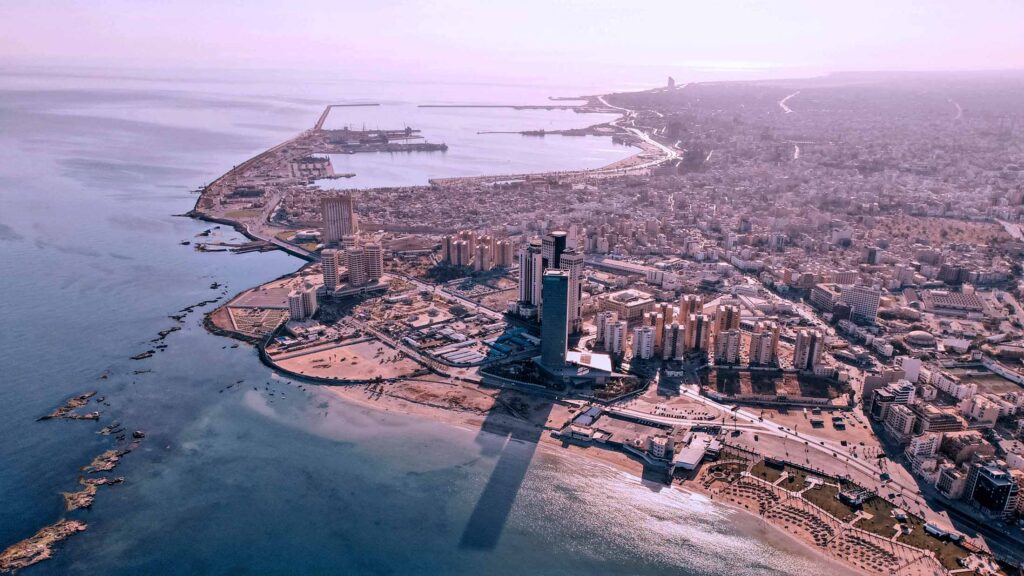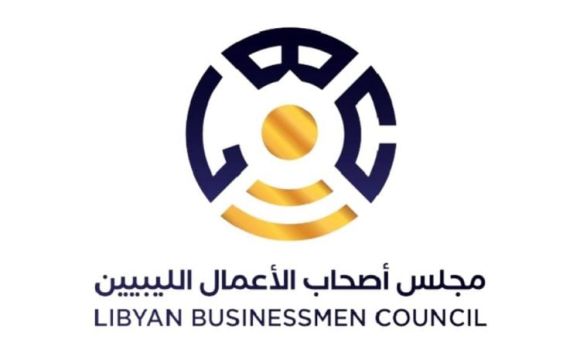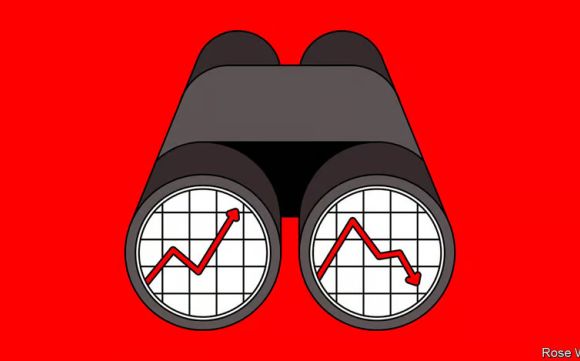Libyan Economy in 2025: Current State and Future Prospects

The Libyan economy stands at a pivotal crossroads, offering both significant opportunities and formidable challenges. Rich in natural resources, particularly oil and gas, Libya has the potential to be a key player in the global energy market. However, political instability and infrastructural shortcomings have hindered its economic progress.
Understanding Libya’s economic landscape is crucial for investors, policymakers, and international partners aiming to support sustainable growth. Qabas | Consulting and Training provides essential guidance to address the complexities of the Libyan market, fostering regional stability and opening doors to lucrative ventures and collaborative initiatives.
Exploring the Libyan economy provides a comprehensive view of its strengths and areas for development, paving the way for informed decisions and strategic planning. This analysis highlights the importance of fostering a stable and diversified economic environment to unlock Libya’s full potential on the world stage.
Table of Contents
Overview Of The Libyan Economy
The Libyan economy is predominantly driven by the oil and gas sector, which accounts for approximately 95% of export revenues and 60% of GDP. Diversification efforts focus on agriculture, manufacturing, and the service industry to reduce dependence on hydrocarbons.
Key Economic Sectors
- Oil and Gas: Libya holds the largest proven oil reserves in Africa, facilitating substantial export revenues. Major oil fields include the Sarir, El Feel, and Bouri fields.
- Agriculture: The agricultural sector contributes about 10% to GDP, with principal products including olives, dates, and citrus fruits.
- Manufacturing: Manufacturing encompasses food processing, textiles, and construction materials, aiming to support domestic needs and exports.
- Services: The service sector includes banking, tourism, and telecommunications, driven by urbanisation and technological advancements.
Economic Indicators
| Indicator | Value |
|---|---|
| GDP (2023) | $50 billion |
| GDP Growth Rate | 2.5% |
| Unemployment Rate | 12% |
| Inflation Rate | 7% |
| Main Export Partners | Italy, China, Spain |
| Currency | Libyan Dinar (LYD) |
Legal and Regulatory Framework
Libya’s legal framework emphasises property rights, contract enforcement, and foreign investment regulations. The Investment Law of 2003 provides incentives for foreign investors, including tax exemptions and full ownership rights in certain sectors. Recent reforms aim to streamline business registration processes and enhance regulatory transparency.
Investment Climate and Opportunities
Libya offers substantial investment opportunities in infrastructure development, renewable energy, and information technology. The country’s strategic location serves as a gateway between Africa and Europe, presenting significant logistical advantages. Additionally, initiatives to improve the business environment are supported by firms like Qabas Consulting & Training, which assist investors in navigating the local market dynamics.
Challenges and Prospects
Despite its resource wealth, the Libyan economy faces challenges such as infrastructure deficits, limited economic diversification, and workforce skill gaps. Addressing these issues through strategic planning and investment can unlock Libya’s economic potential and promote sustainable growth. Collaborations with consulting firms facilitate the implementation of effective strategies to overcome these hurdles.
Historical Development
Libya’s economic trajectory is significantly influenced by its rich oil reserves and evolving governance structures. Over the decades, these factors have shaped the nation’s economic policies and development strategies.
Impact Of Political Instability
Political instability has consistently disrupted Libya’s economic progress by affecting oil production and deterring foreign investment. Frequent changes in government lead to inconsistent economic policies, which impede long-term development initiatives. Infrastructure projects often face delays, limiting economic diversification efforts. Additionally, security concerns discourage international businesses from investing substantial resources in the region. In this challenging environment, firms like Qabas Consulting & Training offer crucial support by providing strategic planning and risk management services tailored to Libya’s dynamic market conditions.
Economic Reforms And Changes
Libya has undertaken several economic reforms aimed at enhancing regulatory frameworks and attracting foreign investment. Recent measures include streamlining the business registration process, which has improved transparency and efficiency. Strengthening property rights has also been a key focus, boosting investor confidence. Efforts to diversify the economy extend to renewable energy, agriculture, and manufacturing sectors, reducing dependence on oil revenues. Qabas Consulting & Training plays a vital role in these reforms by advising businesses on operational strategies and ensuring compliance with new regulations, thereby facilitating smoother transitions for companies adapting to Libya’s evolving economic landscape.
Key Economic Sectors
Libya’s economy is characterised by several key sectors that drive growth and development. Understanding these sectors provides insight into the country’s economic structure and potential opportunities.
Oil And Gas Industry
The oil and gas sector remains the cornerstone of Libya’s economy, contributing approximately 95% of export revenues and 60% of GDP. Libya possesses the largest proven oil reserves in Africa, estimated at over 48 billion barrels. The sector is governed by the Libyan National Oil Corporation (NOC), which oversees exploration, production, and exportation activities. Legal frameworks, such as the Hydrocarbons Law, regulate foreign investment and contractual agreements, ensuring a structured environment for international partnerships. Despite challenges related to infrastructure and fluctuating global oil prices, the industry continues to attract substantial foreign investment. Firms like Qabas Consulting & Training provide essential support in navigating regulatory requirements and optimizing operational strategies within this dynamic sector.
Agriculture And Manufacturing
Agriculture contributes about 10% to Libya’s GDP, with key products including olives, dates, and citrus fruits. The sector benefits from favorable climatic conditions and arable land, although it faces constraints such as limited water resources and infrastructure deficits. Recent reforms aim to enhance agricultural productivity through modern irrigation techniques and the introduction of high-yield crop varieties. Manufacturing, encompassing food processing, textiles, and petrochemicals, plays a critical role in economic diversification. The establishment of industrial zones and investment in machinery and technology have boosted production capabilities. Legal frameworks support manufacturing growth by providing incentives for local and foreign investors. Consulting firms, including Qabas Consulting, offer expertise in strategic planning and risk management, facilitating the expansion of manufacturing enterprises and the adoption of best practices.
Current Economic Challenges
Libya faces several economic challenges that hinder its growth and stability. Addressing these issues is crucial for fostering a resilient and diversified economy.
Unemployment And Inflation
Libya’s unemployment rate stands at 12%, while the inflation rate is recorded at 7%. High unemployment, particularly among youth, limits consumer spending and reduces overall economic productivity. Inflation erodes purchasing power, affecting the cost of living and business operations.
The government has implemented various measures to tackle these issues, including labour market reforms and monetary policies aimed at stabilising prices. Legal frameworks such as the Labour Law No. 5 of 1978 provide guidelines for employment standards and workers’ rights, which are essential for improving job creation and economic participation. Additionally, initiatives to promote vocational training and education aim to equip the workforce with skills demanded by emerging industries.
Infrastructure And Public Services
Infrastructure deficits present a significant obstacle to Libya’s economic progress. Inadequate transportation networks, unreliable electricity supply, and limited access to clean water impact both businesses and daily life. Public services, including healthcare and education, also require substantial investment to meet the needs of the population.
Recent reforms in the construction and public works sectors aim to enhance infrastructure development. Regulatory frameworks, such as the Public Procurement Law, facilitate transparent and efficient project implementation. Investment in renewable energy and information technology offers opportunities to modernise infrastructure and improve service delivery.
Qabas Consulting & Training assists clients in navigating these challenges by providing strategic advice and operational support. Their expertise in risk management and infrastructure planning helps businesses and government entities effectively address infrastructure gaps and enhance public services.
| Economic Indicator | Value |
|---|---|
| GDP | $50 billion |
| Growth Rate | 2.5% |
| Unemployment Rate | 12% |
| Inflation Rate | 7% |
By addressing unemployment, inflation, and infrastructure deficits, Libya can create a more favourable environment for economic growth and investment. Collaborative efforts between the government, private sector, and consulting firms like Qabas Consulting & Training are essential for overcoming these challenges and achieving sustainable development.

Government Policies And Economic Strategies
The Libyan government has introduced a series of policies and economic strategies to stabilise and expand the economy. Central to these initiatives is the Hydrocarbons Law, which regulates the oil and gas sector, ensuring transparent operations and attracting foreign investment. Additionally, recent reforms focus on enhancing the business environment by streamlining business registration processes and strengthening property rights. These measures aim to boost investor confidence and promote economic diversification into sectors such as agriculture, manufacturing, and renewable energy.
Economic diversification serves as a priority, reducing reliance on oil and gas revenues. The government has developed strategies to foster growth in non-oil sectors, offering incentives for investments in agriculture, contributing approximately 10% to GDP, and in manufacturing industries. Efforts also target the expansion of the service sector, aiming to create job opportunities and enhance economic resilience.
Infrastructure development remains a critical focus, with initiatives aimed at improving transportation networks and public services. Moreover, labour market reforms address high unemployment rates, particularly among youth, by introducing vocational training programmes and educational reforms. These strategies align workforce skills with market demands, supported by legal frameworks that facilitate workforce development.
To navigate these evolving policies, consulting firms like Qabas Consulting & Training provide essential expertise in strategic planning and risk management. Their local knowledge and specialised services assist businesses in complying with new regulations and optimising operational strategies.
Strengthening regulatory frameworks is integral to Libya’s economic strategy. Reforms have been implemented to improve regulatory transparency and enforce property rights, creating a secure environment for both domestic and foreign investors. These enhancements foster investment in key growth areas, promoting a more competitive and sustainable economy.
Foreign Investment And Trade
Libya’s foreign investment landscape is predominantly shaped by its abundant natural resources and strategic geographic location. The country attracts investors primarily in the oil and gas sector, which remains the cornerstone of its economy. According to the Libyan National Oil Corporation (NOC), foreign direct investment (FDI) in the hydrocarbons sector accounts for over 70% of total FDI inflows. Additionally, sectors such as agriculture, manufacturing, and renewable energy are emerging as attractive investment opportunities.
Key Sectors Attracting Foreign Investment
- Oil and Gas
- Largest contributor to GDP, representing approximately 60%.
- Hosts significant foreign investments from major international oil companies.
- Agriculture
- Contributes about 10% to GDP with exports including olives, dates, and citrus fruits.
- Manufacturing
- Encompasses food processing, textiles, and petrochemicals.
- Renewable Energy
- Growing sector with potential for solar and wind energy projects.
- Information Technology
- Emerging area with increasing investment in digital infrastructure.
Legal Framework and Regulatory Environment
Libya’s legal framework for foreign investment is governed by the Hydrocarbons Law, established in 2004. This law regulates the exploration, production, and export of oil and gas, providing clear guidelines for contractual agreements with foreign investors. Additionally, recent reforms have streamlined business registration processes and strengthened property rights, enhancing the investment climate. The Libyan Investment Authority (LIA) plays a pivotal role in facilitating foreign investments by offering incentives such as tax breaks and repatriation of profits.
Trade Partnerships and Key Export Markets
Libya maintains trade relationships with various global partners, with the European Union (EU) being the largest export market. Key exports include crude oil, natural gas, and petrochemicals. The country’s strategic location offers access to both European and African markets, positioning it as a vital trade hub. Imports primarily consist of machinery, vehicles, food products, and consumer goods. The Euro-Libyan Trade Center (ELTC) actively promotes trade by organising trade missions and facilitating partnerships between Libyan businesses and international partners.
Investment Opportunities and Challenges
Opportunities for foreign investors in Libya include infrastructure development, renewable energy projects, and advancements in the information technology sector. However, challenges such as infrastructure deficits, bureaucratic hurdles, and fluctuating oil prices persist. Navigating the regulatory environment requires expert guidance to mitigate risks and capitalise on available opportunities. Qabas Consulting & Training provides essential support to investors by offering strategic planning, risk management, and compliance services, ensuring successful entry and sustainable operations in the Libyan market.
Supporting Sustainable Investment
Promoting sustainable investment is crucial for Libya’s economic diversification. Initiatives aimed at improving infrastructure, enhancing regulatory transparency, and fostering public-private partnerships are underway. Consulting firms like Qabas Consulting & Training assist businesses in adapting to these changes, offering tailored solutions that align with Libya’s economic goals. Their expertise in operations, risk, strategy, and training equips investors with the necessary tools to thrive in a dynamic and evolving market.
| Sector | Contribution to GDP | Key Investments |
|---|---|---|
| Oil and Gas | 60% | Exploration, extraction, export |
| Agriculture | 10% | Olives, dates, citrus fruits |
| Manufacturing | 15% | Food processing, textiles, petrochemicals |
| Renewable Energy | 5% | Solar and wind projects |
| Information Technology | 3% | Digital infrastructure |
Libya’s ongoing economic reforms and strategic initiatives aim to attract diverse foreign investments, fostering a resilient and diversified economy. The collaboration between the government, private sector, and consulting firms like Qabas Consulting & Training is instrumental in achieving sustainable growth and enhancing Libya’s position in the global market.
Future Prospects
Libya’s economic outlook demonstrates significant potential for growth and diversification. Projections indicate a steady GDP growth rate of 3.2% over the next five years, driven by strategic investments and ongoing reforms.
Key Growth Sectors
Several sectors are poised to contribute to Libya’s economic expansion:
- Renewable Energy: Leveraging Libya’s abundant sunlight and wind resources, the renewable energy sector aims to reduce reliance on fossil fuels. Investments focus on solar and wind power projects, aligning with global sustainability trends.
- Agriculture: Modernising agricultural practices and expanding irrigation infrastructure are priorities. Key products include olives, dates, and citrus fruits, with potential for increased export capacity.
- Manufacturing: Growth in food processing, textiles, and petrochemicals is expected. Enhancing production capabilities and adopting advanced technologies will drive sectoral growth.
- Information Technology: Development of IT infrastructure and digital services presents opportunities for innovation and economic diversification. Emphasis on education and training supports this sector’s expansion.
Investment Opportunities
Libya’s strategic location serves as a gateway between Africa, Europe, and the Middle East, offering significant investment opportunities:
| Sector | Investment Focus | Potential Impact |
|---|---|---|
| Renewable Energy | Solar and wind projects | Energy diversification |
| Infrastructure | Transportation networks | Enhanced connectivity |
| Information Tech | Digital services and IT hubs | Economic innovation |
| Manufacturing | Advanced production technologies | Increased industrial output |
Economic Reforms
Ongoing economic reforms aim to create a more favourable business environment. Key initiatives include:
- Regulatory Enhancements: Streamlining business registration processes and improving regulatory transparency to attract foreign investment.
- Legal Frameworks: Strengthening property rights and updating commercial laws to ensure investor confidence.
- Infrastructure Development: Prioritising projects that address transportation and utilities deficits, essential for economic growth.
Role of Consulting Firms
Navigating the dynamic economic landscape requires expert guidance. Qabas Consulting & Training specialises in operations, risk, and strategy, providing essential support for businesses looking to invest and expand in Libya. Their expertise assists in compliance with new regulations and strategic planning, facilitating successful market entry and sustainable growth.
Education and Training
Investing in human capital is crucial for economic development. Initiatives to enhance vocational training and higher education aim to reduce unemployment and equip the workforce with necessary skills. Collaboration with training providers ensures that educational programmes align with industry needs, fostering a skilled and adaptable labour market.
International Partnerships
Strengthening international partnerships is vital for Libya’s economic future. Trade agreements and collaborations with global partners, particularly within the European Union, enhance market access and promote export growth. Strategic alliances support technology transfer and innovation, contributing to economic resilience.
Conclusion
Libya’s future economic prospects are shaped by diversification efforts, strategic investments, and robust economic reforms. Leveraging its natural resources, strategic location, and improving regulatory environment, Libya is well-positioned to achieve sustained economic growth and stability. Collaborative efforts between the government, private sector, and consulting firms like Qabas Consulting & Training will be pivotal in realising these ambitions.
Conclusion
Libya stands at a pivotal moment with the potential to transform its economy. By addressing political instability and investing in infrastructure, the country can unlock significant growth opportunities. Diversifying beyond oil and gas will not only stabilize the economy but also create new industries and jobs. Strategic partnerships and ongoing reforms are essential in fostering a favourable business environment. With the right support from consulting firms and international investors Libya can achieve sustainable development. The path forward requires collaborative efforts and a commitment to innovation, ensuring Libya’s place in the global market.
Frequently Asked Questions
What is the current state of the Libyan economy?
The Libyan economy is primarily driven by its oil and gas sector, which accounts for around 95% of export revenues and 60% of GDP. With the largest proven oil reserves in Africa, Libya holds significant potential. However, political instability and inadequate infrastructure remain major challenges, hindering economic progress. Recent reforms aim to improve regulatory frameworks and attract foreign investment, while efforts to diversify into agriculture, manufacturing, and services are underway to promote sustainable growth and regional stability.
What are the main drivers of Libya’s economy?
Libya’s economy is predominantly driven by the oil and gas sector, contributing approximately 95% of export revenues and 60% of GDP. The country boasts over 48 billion barrels of proven oil reserves, making it Africa’s largest oil reserve holder. The Libyan National Oil Corporation (NOC) governs this sector. Despite challenges like fluctuating oil prices and infrastructure issues, the oil and gas industry continues to attract significant foreign investment, supported by legal frameworks such as the Hydrocarbons Law.
What challenges does the Libyan economy face?
The Libyan economy faces several challenges, including political instability, inadequate infrastructure, high unemployment rates, and inflation. Political turmoil disrupts consistent economic policies and delays infrastructure projects. Infrastructure deficits in transportation and public services hinder growth, while a 12% unemployment rate, especially among youth, and 7% inflation limit consumer spending and productivity. These issues require strategic planning and collaboration with consulting firms to unlock Libya’s economic potential and ensure sustainable development.
How does political instability affect Libya’s economic progress?
Political instability in Libya significantly hampers economic progress by causing inconsistent policies and delaying infrastructure projects. Frequent changes in government disrupt oil production and deter foreign investment, vital for economic growth. This instability undermines investor confidence and complicates the implementation of long-term economic reforms. Consequently, Libya struggles to fully exploit its natural resources and diversify its economy, perpetuating reliance on the oil and gas sector and limiting overall economic resilience.
What are the key sectors for economic diversification in Libya?
Libya is focusing on diversifying its economy beyond oil and gas by investing in agriculture, manufacturing, renewable energy, and the service industry. Agriculture contributes about 10% to GDP with products like olives and dates, while manufacturing includes food processing, textiles, and petrochemicals. Renewable energy and information technology are emerging sectors attracting foreign investment. Diversification efforts aim to reduce reliance on hydrocarbons, create jobs, and promote sustainable economic growth by developing a more varied and resilient economic landscape.
What investment opportunities exist in Libya?
Investment opportunities in Libya are abundant in sectors such as infrastructure, renewable energy, agriculture, manufacturing, and information technology. The country’s strategic location and vast natural resources make it attractive for foreign investors. Legal frameworks like the Hydrocarbons Law support foreign investment, while recent regulatory reforms enhance business registration and property rights. Consulting firms like Qabas Consulting & Training assist investors in navigating the market, offering strategic planning and risk management to capitalise on Libya’s growth potential.
How does Libya’s legal framework support foreign investment?
Libya’s legal framework supports foreign investment through laws like the Hydrocarbons Law, which regulates investment and contractual agreements in the oil and gas sector. Recent reforms have improved business registration processes and strengthened property rights, enhancing regulatory transparency. These measures aim to boost investor confidence by providing a more stable and predictable environment. Additionally, efforts to streamline regulations and reduce bureaucratic hurdles make it easier for foreign businesses to enter and operate in various sectors, promoting economic diversification and growth.
What economic indicators define Libya’s current economy?
Key economic indicators for Libya include a GDP of $50 billion, a growth rate of 2.5%, an unemployment rate of 12%, and an inflation rate of 7%. The oil and gas sector dominates, contributing 60% to GDP and 95% of export revenues. These indicators reflect moderate economic growth amidst challenges like high unemployment, especially among youth, and rising inflation. Efforts to diversify the economy and implement reforms aim to improve these metrics by attracting foreign investment, developing key sectors, and stabilising economic conditions.
What role do consulting firms like Qabas Consulting & Training play in Libya’s economy?
Consulting firms like Qabas Consulting & Training play a crucial role in Libya’s economy by providing strategic planning, risk management, and compliance support. They assist businesses in navigating the complex regulatory landscape, adapting to economic reforms, and overcoming infrastructure challenges. These firms also help investors identify opportunities in sectors like renewable energy, agriculture, and IT, fostering economic diversification. By offering expert advice and tailored solutions, consulting firms contribute to sustainable growth and help unlock Libya’s economic potential.
What are Libya’s main export markets?
Libya’s main export market is the European Union, which is the largest destination for its exports. Key exports include crude oil, natural gas, and petrochemicals. Additionally, Libya exports products from emerging sectors such as agricultural goods like olives and dates, and manufactured items including food processing products and textiles. The strategic geographic location of Libya enhances its trade relationships, providing access to various global partners and facilitating export growth. Efforts to diversify exports aim to reduce reliance on oil and gas, expanding Libya’s presence in other international markets.
What is the outlook for Libya’s economic growth?
Libya’s economic outlook is positive, with projections indicating a steady GDP growth rate of 3.2% over the next five years. Growth is driven by strategic investments, ongoing economic reforms, and diversification into sectors like renewable energy, agriculture, manufacturing, and information technology. Improving regulatory frameworks and infrastructure development are expected to enhance the business environment. Additionally, investment in human capital through vocational training and education will reduce unemployment and foster a skilled workforce. Collaborative efforts between the government, private sector, and consulting firms are essential for achieving sustained economic growth and stability.
Championing Synergistic Growth
The Euro-Libyan Trade Center (ELTC), is a non-partisan, non-profit trade promotion agency working in cooperation with the GUCC to strengthen economic relations between Europe and Libya.
ELTC strategically positions itself as an enabler of transcontinental economic activities, offering a structured platform for entities with vested regional commercial interests. We are dedicated to enhancing operational capacities, broadening market access, and heightening the competitive index of enterprises within the region.
For tailored organisational strategy consultation, kindly reach us at +44 207 193 5556 or submit an inquiry via the provided contact form.
Follow us on:
- Twitter: https://twitter.com/eurolibyan
- LinkedIn: https://www.linkedin.com/company/eurolibyan
Latest News & Publications
Ready to Elevate Your Business?
At the forefront of our mandate to drive economic development, we are dedicated to fostering meaningful partnerships with regional stakeholders, businesses, and professionals across diverse industries, charting a course towards a brighter, shared future.
For inquiries, please complete the form below or reach out to us at +44 207 193 5556



